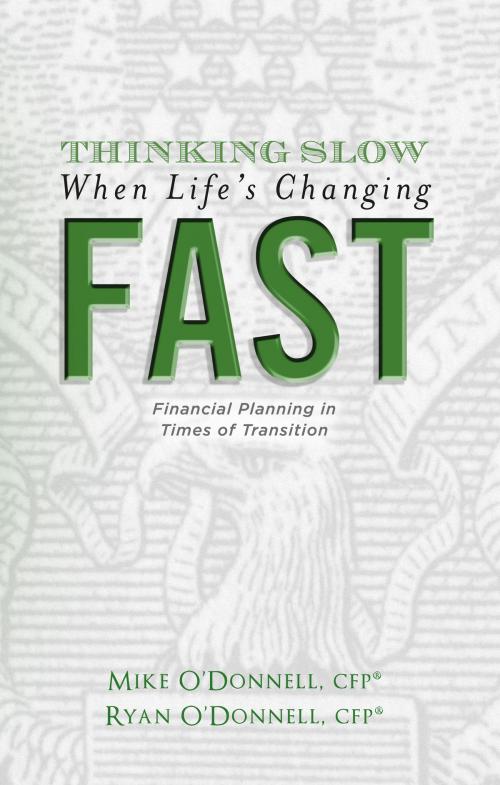Thinking Slow When Life's Changing Fast
Financial Planning in Times of Transition
Business & Finance, Finance & Investing, Finance| Author: | Mike O'Donnell, Ryan O'Donnell | ISBN: | 9781483554419 |
| Publisher: | BookBaby | Publication: | May 15, 2015 |
| Imprint: | Language: | English |
| Author: | Mike O'Donnell, Ryan O'Donnell |
| ISBN: | 9781483554419 |
| Publisher: | BookBaby |
| Publication: | May 15, 2015 |
| Imprint: | |
| Language: | English |
When life changes fast, we are often required to make decisions that will impact our financial lives for years to come, as well as the financial lives of generations to follow. Yet, as human beings, we are emotionally affected by the instability of transitions in ways that undermine our decision-making capacity. And worst of all, we are often unaware that our judgment is impaired, “blind to our blindness,” as Nobel Prize-winning psychologist Daniel Kahneman puts it. This book draws on the latest research by Kahneman and others to help you shed light on your own decision-making processes and how to make smarter choices during just those times when it is most difficult to think clearly. In our many years as wealth managers, we have all too often been in the position of attempting to help our clients repair the financial damage done during a hasty divorce, an impetuous investment, or a poorly managed influx of cash. We hope that by bringing together well-developed financial acumen with a deeper appreciation of human psychology, this small book will act as a preventive measure, helping individuals of all financial shapes and sizes become better prepared for the challenge of change. To borrow Kahneman’s term, it is designed to teach you how to “think slow” when life is changing fast and money is changing hands.
When life changes fast, we are often required to make decisions that will impact our financial lives for years to come, as well as the financial lives of generations to follow. Yet, as human beings, we are emotionally affected by the instability of transitions in ways that undermine our decision-making capacity. And worst of all, we are often unaware that our judgment is impaired, “blind to our blindness,” as Nobel Prize-winning psychologist Daniel Kahneman puts it. This book draws on the latest research by Kahneman and others to help you shed light on your own decision-making processes and how to make smarter choices during just those times when it is most difficult to think clearly. In our many years as wealth managers, we have all too often been in the position of attempting to help our clients repair the financial damage done during a hasty divorce, an impetuous investment, or a poorly managed influx of cash. We hope that by bringing together well-developed financial acumen with a deeper appreciation of human psychology, this small book will act as a preventive measure, helping individuals of all financial shapes and sizes become better prepared for the challenge of change. To borrow Kahneman’s term, it is designed to teach you how to “think slow” when life is changing fast and money is changing hands.















